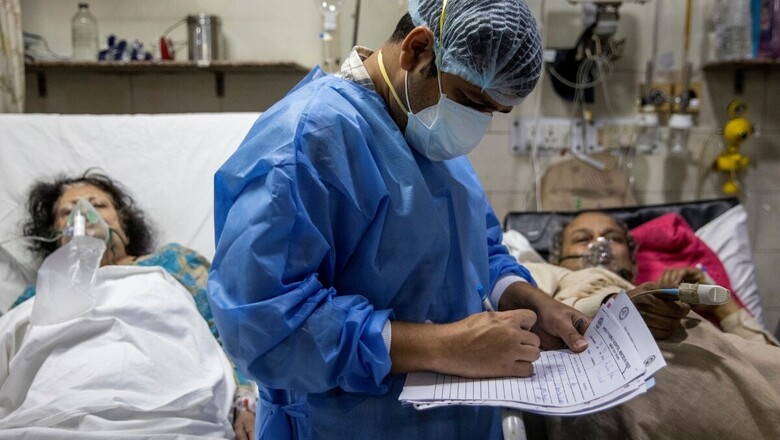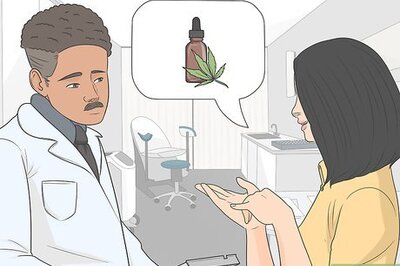
views
As India continues to see a rise in black fungus cases, an ICMR study revealed that at least 3.6% of hospitalised Covid-19 patients were affected with secondary bacterial and fungal infections during the first wave of the pandemic. However, the hospitals did not report cases of the fungal infection mucormycosis.
The mortality rate in these patients increased to 56.7% as against 10.6% among hospitalised patients in the ten hospitals from where data was collected, said a statement by the ICMR on Monday. In one of the hospitals, the mortality rate was as high as 78.9%, the data releaved.
The indication of the infection in the patients began two days after their hospitalisation and most of the samples tested showed it was hospital-based infection, said an ICMR scientist.
“What we found was that most of these secondary infections, 78% of them, were acquired at the hospital; the indication for infections started two days after hospitalisation and most of the samples had gram negative bacteria showing that they were hospital-based infection. This could be because infection control policies at the hospitals went for a toss amid the pandemic. Hand hygiene wasn’t as good because of double gloving and use of PPE kits in the hot weather also added to that,” said Dr Kamini Walia, corresponding author of the paper and a scientist with the epidemiology and communicable diseases department at ICMR.
“The most common pathogens causing the infection were Klebsiella pneumonia and Acinetobacter baumannii; usually E coli is the most common pathogen found as per previous ICMR reports. Both the infections are very difficult to treat because they have acquired lot of resistant genes over time. The treatment will further become difficult post-Covid. Hospitals must invest in infection control and rationalise antimicrobial prescriptions,” she added.
A doctor at one of Delhi’s leading multi-specialty hospitals, which was also included in the study, called the situation a “double whammy”, saying that Covid-19 along with other infections increased fatality rate among the patients.
“[This is] a double whammy; Covid-19, along with the secondary infections, increases mortality significantly… Mucormycosis cases reported after the second wave are largely [related] with the overuse of steroids. At the peak [of the second wave], steroids had vanished from the market. This has never happened before; It is one of the most common medicines available,” said Dr Chand Wattal, head of the department of microbiology at Sir Ganga Ram hospital.
The ICMR study also cautioned against the increase in antimicrobial resistance in the coming years due to excessive use of stronger medicines. Around 74.4% of the total antimicrobials prescribed in the hospitals were from the Watch and Reserve category of the World Health Organization (WHO).
However, no guidelines on the rational use of antimicrobial in Covid-19 patients were clarified by ICMR in its study.
“Around 47% of the infections were found to be multi-drug resistant; but more than 74% of the antimicrobials prescribed were from the Watch and Reserve category. And, the ten hospitals from where we have collected data are in the ICMR network; they have been trained in infection control and antimicrobial stewardship. We can only imagine what is happening in other hospitals,” said Dr Walia.
“These hospitals are backed by good lab facilities and many of these antibiotics should be prescribed only after the culture test comes positive. However, a very low number of samples were collected for microbial culture,” she said.
Of the 17,534 Covid-19 patients at the ten hospitals — admitted between June 1 and August 30 last year — only 7,163 samples were sent for microbial culture, with several samples belonging to the same patients. According to doctors, the low sampling was due to practical problems including healthcare workers being afraid to collect the samples during the first wave.
Delhi currently has around 500 cases of black fungus or mucormycosis and the city has been grappling with a shortage of Amphotericin-B injection used in its treatment, Chief Minister Arvind Kejriwal on Monday. Four to five injections per patient per day are used in the treatment of the fungal infection. About 15 hospitals in the city are treating patients of mucormycosis.
Read all the Latest News, Breaking News and Coronavirus News here. Follow us on Facebook, Twitter and Telegram.
















Comments
0 comment